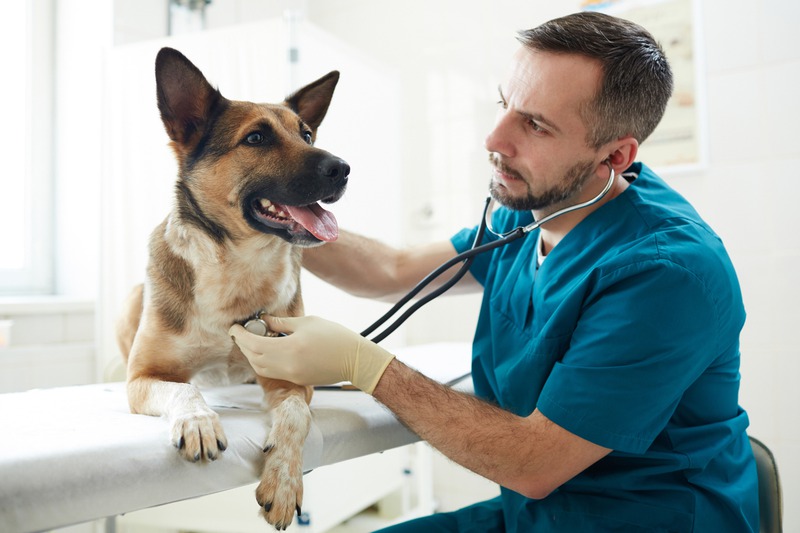Caring for our pets means loving them, feeding them well, and taking them for regular vet check-ups. Vaccines are a top priority to keep our furry friends healthy. Like how we need shots to stay healthy, our pets do, too. By vaccinating, we prevent dangerous diseases and ensure they live happier lives. It’s a simple act with huge benefits, similar to having a friendly chat about wellness over coffee.
The Essentials of Pet Vaccination
A Quick Rundown on Vaccines
Vaccines are a personal trainer for your pet’s immune system. They give it a sneak peek at a harmless piece of a disease-causing culprit. Think of it as a wanted poster that helps the immune system recognize the bad guys if they ever try to cause trouble in the future. It’s a safe way to teach them to defend without facing the real threat.
Why Vaccines are Relevant
Vaccinations go beyond just a jab – they are a ticket to your pet’s happy, disease-free life. Let’s not forget about the ripple effect – keeping our pets healthy also shields other animals and humans they might come into contact with. A vaccinated pet is far less likely to be a carrier of dangerous diseases, whether during a playdate at the dog park or a cuddle session at home.
The Lifesaving Regularity of Vaccines
Now, we might think, “Why don’t pets get lifetime immunity?” Well, immunity can fade, like memories of our high school French lessons. To keep their defenses up, pets need booster shots. Here’s the lowdown:
-
Disease Prevention: A vaccinated pet leads a life with less risk of catching and spreading diseases.
-
Community Shield: By controlling pet diseases, we also protect human health because some nasty bugs don’t care who they infect.
-
Law and Order: Vaccinating your pet isn’t just medically savvy – it’s often the law. This is particularly true for rabies shots.
-
Cost-Effective Care: Preventing a disease is far less draining on our wallets than treating one.
-
Peace of Mind: Knowing you’re doing your best to prevent illness in your pet lets you sleep better at night.
Vaccine Types: Core and Non-Core
Core Vaccines:
-
Dogs typically need shots against rabies, distemper, parvovirus, and adenovirus.
-
Cats also have a list of rabies, calicivirus, panleukopenia, and herpesvirus.
Non-Core Vaccines:
-
Non-core vaccines could protect dogs against kennel cough or Lyme disease.
-
For cats, these may encompass vaccines for leukemia or Bordetella.
Timing Is Everything: When to Vaccinate
Understanding when to vaccinate your pets ensures their long-term health and well-being. Here’s why timing matters:
-
Newborn Stage: Puppies and kittens receive initial immunity from their mother’s milk. However, this protection doesn’t last, making early vaccinations vital.
-
Young Age: Beginning at around 6 to 8 weeks, young pets should start their vaccination series. Multiple doses are needed to build robust immunity.
-
Booster Shots: After the initial series, periodic boosters are necessary. These maintain immunity as maternal antibodies wane.
-
Adult Maintenance: Continuing with regular vaccine schedules ensures ongoing protection against various diseases as your pet ages.
-
Lifestyle Considerations: Outdoor activities, boarding, and grooming expose pets to risk, potentially requiring more frequent vaccinations.
-
Veterinary Guidance: Your pet’s unique health profile will dictate the ideal vaccination plan. A trusted veterinarian is your best resource.
Just as every pet has their personality, so should their cat and dog vaccinations schedule be tailored specifically to them. Work closely with your vet to keep your furry friend healthy and happy.
Getting Vetted Advice
It’s imperative to have a vet in your corner. The right vet can shed light on the specific vaccines your pet needs, especially if they have underlying health issues that complicate things. Speaking of complexity, if you require an internal medicine vet, remember they bring a deeper clinical understanding to your pet’s healthcare routine, which can be valuable for pets with chronic conditions.
Vaccine Hesitations
It’s natural to have questions or feel a bit worried. Here’s a reality check – side effects of pet vaccines are generally rare and mild. Usual suspects include a bit of soreness or temporary lethargy. Severe reactions are as rare as a cat that likes water, but stay vigilant and chat with your vet if anything seems off. And remember to ignore the tall tails and myths swirling around. Stick with the facts straight from reputable sources.
Your Go-to Pros for Pet Health
Finding a vet you trust is as critical as finding a good mechanic for your car. If impeccable care is your priority, experts from Douglasville veterinary hospital are worth checking out. They’re like the pit crew for your pet’s health race.
Vaccine Records
Keep a neat file of your pet’s healthcare records; they’re as important as your passport when it’s time to hit the road or for those emergencies. Digital records can also be a lifesaver in this age of technology.
Final Thoughts
Vaccinating our pets may cause a brief sting, but it’s essential for their long-term well-being. Vaccines protect them from severe illnesses and help us live stress-free, knowing they’re healthy. Although pets might dislike vet visits, regular vaccinations are crucial to caring for them, ensuring a happy life together as responsible pet owners. It’s a small step that makes a big difference in keeping our beloved pets safe.


